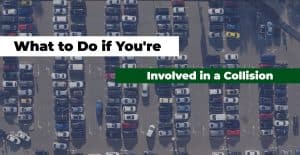May is National Youth Traffic Safety Month, a month dedicated to highlighting the concerns that young drivers face on the road as well as strategies for encouraging safe driving practices and reducing traffic-related risks. Because DriveSafe’s dedication to helping young drivers learn how to stay safe behind the wheel is always at the forefront of our mission, we are happy to come together with like-minded organizations to use the month of May to raise awareness and shine a spotlight on an incredibly important topic.
One specific way that the Colorado community has worked to keep young drivers safe is by implementing Graduated Driver Licensing (GDL) laws, which are laws that restrict certain driving privileges of teen drivers until they’ve held a license for a certain amount of time. The idea behind the restrictions is that adolescents will have an opportunity to mature as independent motorists and gain valuable experience before dealing with variables that can increase risk or serve as distractions, such as peer passengers, cell-phones, and nighttime driving.
While many parents see the benefit of helping their teens build up their driving skills at a gradual, safe pace, some parents (and many students) feel these laws are an inconvenience that undermines the fact that their students have already passed the drivers license test. However, the numbers speak for themselves. According to the Colorado Department of Transportation, traffic deaths of teen drivers have dropped by 67% since Colorado brought the GDL laws into action.
To continue to reap the benefits that these laws bring, it’s important that students and parents take these laws seriously and understand what they are and why they help. To help with this, here is some more information on these life-saving laws:
Coloradans Under 18 Must Hold a Permit for One Year Before Taking a Drivers License Test
Many people believe that student drivers can take the drivers license test as soon as they turn 16 (here are the drivers ed requirements for those under 16), but all drivers under the age of 18 must hold their permits for one year before being able to take the test. This is to help ensure that there is time for student drivers to get adequate practice before being allowed to drive without supervision. Being able to thoroughly practice helps ensure that they will get to experience a variety of road conditions, such as different types of weather, city vs. rural roads, etc. That is why the Colorado DMV requires those who are under 18 to log 50 hours of behind-the-wheel practice, with at least 10 of those hours being at night, before being eligible for a drivers license. That said, it’s highly recommended to practice for more than the bare minimum.
Colorado Graduated Driver Licensing Laws Prevent Peer Distraction and Influence
While the image of driving around with friends is at the heart of why many teenagers are so eager to get their drivers licenses, peers can serve as a presence that distracts the driver or influences him/her to behave in risky ways. Even for experienced drivers, engaging in conversations with passengers can divert attention from the road, and the risk of this distraction is even greater for inexperienced drivers who are not accustomed to driving without a supervisor. A supervisor is there to help a student driver make smart choices and also to serve as an attentive lookout for possible hazards, whereas teen passengers often don’t take this stance of shared responsibility, especially if they themselves are still learning how to drive.
Additionally, teenagers are at a delicate time in their lives when the desire to be accepted by peers is strong and the frontal lobe is still underdeveloped. This can lead them to engage in risky behavior in order to show off or succumb to peer pressure, potentially leading to dangerous actions such as street racing or speeding in general; driving in unfamiliar areas with risky terrain (e.g., narrow mountain roads); engaging in substance use; taking selfies while driving; blasting music at distracting volumes; or egging on an aggressive driver.
To prevent peer influence from affecting young motorists who are just starting to drive independently, Colorado law says that:
- A driver under 18 cannot drive with any passengers under 21 years of age for the first six months after getting his/her drivers license, unless someone over 21 is also present in the vehicle.
- For the next six months, teenagers are only allowed to drive with one passenger under 21.
- Exceptions to this rule allow teenagers to drive with their siblings or someone who is having a medical emergency.
GDL Laws Reduce the Risk of Behind-the-Wheel Cell-Phone Use
Cell-phone use is frequently regarded as one of the biggest culprits of distracted driving. From reading or sending texts, checking an email, changing a song, taking a selfie, or altering a GPS location, cell-phones have a multitude of uses that tempt drivers to divert their focus from the road.
While it can be dangerous for any driver to use their phone behind the wheel, it’s especially risky for new and inexperienced drivers. Colorado law bans both adults and minors from texting while driving, but adults are allowed to talk on the phone while driving while minors are not (except in the case of an emergency). New drivers have slower reaction times, meaning it is even more important that they keep two hands on the wheel and their eyes on the road.
GDL Laws Regulate the Curfew for Teen Drivers
Nighttime driving poses more risks than driving in the daytime does. Poor visibility can make it hard to gauge the speed and distance of other vehicles, and it also makes it difficult to see road signs, pavement markings, and pedestrians or wildlife. Similarly, drivers are more likely to become fatigued when it’s dark out, and it’s more likely that there would be impaired drivers on the streets.
New drivers will be better able to handle these additional challenges of driving after sunset if they safely acclimate to driving independently during the daytime first. Because of this, those who are under 18 cannot drive without a parent or guardian present between midnight and 5 a.m. during the first year of holding a license.
There are exceptions to this rule, such as if a teenager is driving to or from work or a school-related event, there is a medical emergency, or the teenager is emancipated.
Parents Can Further Protect Their Teen Drivers by Establishing Their Own Driving Guidelines
Colorado’s GDL laws are enforceable, and violators can receive fines and/or demerit penalties on their driving record, which is why it helps protect both a young driver’s safety and his/her driving record if parents do what they can to make sure their adolescents abide by these laws.
That said, parents know their teenagers on a personal level and should establish guidelines and expectations that fit their son or daughter’s individual personality. Just because a teen driver has held his/her drivers license for a year doesn’t mean that a parent can’t still limit the amount of peer passengers allowed in the car or establish a driving curfew. The GDL laws should serve as a foundation, but parents can establish their own safety guidelines based on their young driver’s maturity and skill level.
Closing Up
As National Youth Traffic Safety Month comes to a close, it is important to understand that Colorado’s Graduated Driver Licensing laws work to protect inexperienced motorists. For busy parents and teenagers who are eager to get behind the wheel with friends, GDL laws can seem like an inconvenience, but the research shows that the safety these laws provide more than makes up for slightly extending the process of getting a restriction-free drivers license.
At the end of the day, parents want their sons and daughters to be safe above all else, and they will help protect their teens’ well-being if they do what they can to ensure that their young drivers make smart decisions. GDL laws work to build up inexperienced drivers’ competency by giving them time to mature as motorists with minimal distractions, so that when the restrictions are lifted, new drivers can feel more confident and parents can breathe easier knowing that their sons and daughters are better equipped to handle the unpredictability of the road.
Take Driving Lessons with the Most Trusted Driving School in Colorado!
Regardless of age, all aspiring drivers can benefit from learning from professional driving instructors. Instructors are expertly trained to help students learn how to safely maneuver a vehicle, avoid and manage hazards, and make responsible choices behind the wheel. Professional driving lessons help establish healthy driving habits from the start, and students who learn from instructors also have a higher likelihood of passing their drivers license tests.
Whether you’re looking for private driving lessons, a drivers ed classroom experience, or an online driving school, DriveSafe offers many convenient options to fit your schedule and budget. We’ve helped thousands of Coloradans become safe, confident motorists, and with 12 locations across the Denver-Metro area, we pride ourselves on being a drivers ed option that is high in both quality and accessibility.
Browse our services, or get in touch with one of our friendly representatives. We can’t wait to help you with your driving goals!










